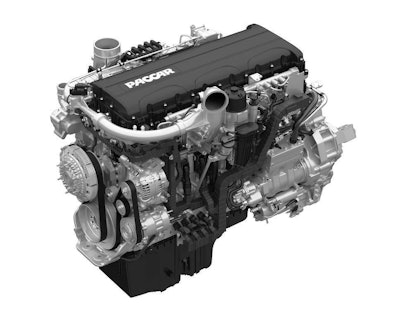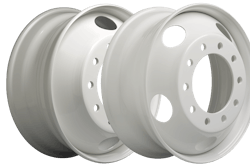 The Paccar MX-11
The Paccar MX-11The vertical integration of powertrains has quickly made its impact on trucking, shifting the balance of power among engine makers and truck makers over the last five model years.
Statistics compiled by Dave Kalvelage, manager IT and database services for MacKay and Co., and presented at Heavy Duty Aftermarket Week in Las Vegas Monday show Detroit, Volvo and Paccar branded power eating engine market share dropped by International and Cummins.
From 2010 to 2015, 19 points were put up for grabs. Cummins went from 39 percent share to 36, while International slid from 13 percent to 4 percent. Mack shed 1 percent – from 9 to 8 percent. Caterpillar’s exit from the market put another 4 percent on the table. Mercedes Benz-branded engines went from 3 percent to 1 percent.
Paccar was the big winner over those five model years, snapping up 9 percent – up from 2 to 11 percent.
Next was Volvo, up from 6 to 11 percent while Detroit grew its share from 24 to 29 percent.
Much of Detroit’s gains were driven by Freightliner seizing truck market share over the same five-year period.
Freightliner went from 32 to 38 percent while Kenworth also nabbed a 4 percent gain, up from 11 to 15 percent. Volvo jumped from 9 to 12 percent and Peterbilt jumped from 12 to 13 percent.
Those four brands snapped up the 13 percent lost by International and 1 percent from Mack Trucks.










